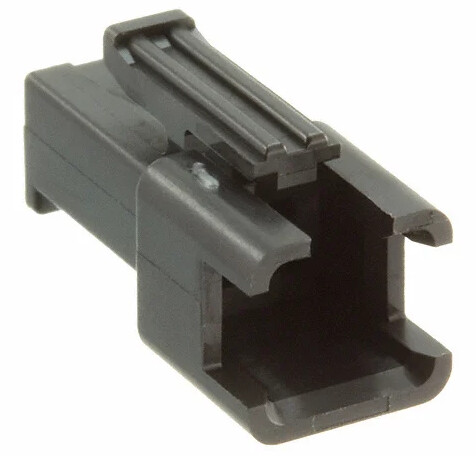Hello,
I’m looking for a ring mounted thermal sensor. The inop one pictured has 5-2.5 stamped on the ring.
Thankyou,
lifer70
Welcome to the forum lifer70!
I think the marking found on the ring terminal is just denoting the physical size of the ring, not a part number. Do you know any specifications about the part in question? I searched online for thermal sensors with ring terminals and it is most likely a thermocouple type with two connectors on the other end. However, without more specifications like the base resistance at 25ºC, specific resistances (called B values) at specific temperatures, power rating, and more. I do not currently see any of our thermistors have an attached ring terminal, though. The link below are the NTC thermistors we have available.
Let me know if you have further questions.
Hi Kaleb,
This sensor operates at a temperature of approximately 152°C (292°F).
It regulates temperature on a thermoblock for high end espresso machines.
This sensor is a frequent problem.
Thank you for the response. I am still having a difficult time understanding how this sensor works based on the details given. Does it produce a signal of some kind? Does it change resistance based on the ambient temperature? What does the other end of the device look like?
If you aren’t sure of these details, could you provide the model number for the Espresso machine? It may be possible to find more information that way.
The model I’m currently working on is a Jura Z9 model # 13752.
Here is the rest of the paragraph-
The JURA Z9 thermoblock operates at a temperature of approximately 152°C (292°F). This temperature is maintained by a temperature fuse, which will activate and shut down the machine if the thermoblock exceeds this temperature. The machine may also have a setting to adjust the coffee temperature, with “hot” being a more extreme setting for hotter coffee.
I’m not sure if they mean this part is the fuse. The temperature can be adjusted but 152°C (292°F is the highest setting.
It is listed as a thermal sensor.
The fuse is a seperate item not this part.
“fuse” is a term that can also be used for items like the NTCs even though it does not specifically have the direct functionality of an atypical fuse.
Without knowing the full specification of the item you have imaged we cannot indicate an exact match from our system. The below link shows the items we do list that come with a ring lug connector already attached.
Thankyou for your help Nathan.
I’ll just order from your suggestions and experiment.
Hi, did you find a compatible one? I have order original part for replacement and will measure parameters (mostly b-value since I’m pretty sure it’s 10k resistance) to post here. It’s crazy they charging $60 for it.
Will be interested in hearing what you find out. Agree that $60 seems nuts, assuming it is just an NTC thermistor.
Assuming you are correct that it’s a 10K thermistor, here’s a subset of our 10k thermistors with a ring terminal lug clamped around the thermistor and leads attached. If you can narrow down the beta value, that would help to narrow down the list even further.
As a note, based on images I saw, it looks like the connector attached to the Jura Z9 temperature sensor is probably the JST SMR-02V-B, which requires the SYM-001T-P0.6(N) contacts.
Most likely the original part is custom made by the manufacturer in tiny quantities (<100/batch).
Standard consumer electronics profit margins when sold through normal manufacturer → distributors → retailers chain are often set for 50% at each level and then discounted from there by each party shaving their margins to get the most sales.
In-house labor in the US or EU for a small company can easily can be well over $100/hour (includes vacations, holidays, sick pay, multiple types of insurance, employer taxes, retirement funds, management/sales/marketing/engineering overhead).
So even if the parts are< $1, the total COGS (cost of goods sold) could easily be $30.
With replacement parts, there usually is no discounting so if the manufacturer has COGS of $30 they’ll usually charge the full list price of $60 for the part assembly.
This of course is a very good reason to do a DIY repair and avoid the overhead and labor costs of a small consumer electronics manufacturer.
So I ordered a new part (OEM) and measured it to the best of my abilities, it is an NTC with R25=100K, Resistance measured at 84.4 was 9.60K, 88.6 - 8.68K which gives beta between 4174 and 4236. Digikey has bunch of ring lug thermistors with B25/85 = 4190 which should work just fine.
milokhov,
I’m glad you found some solutions for this product. Let us know if there is anything else we can help with.
Thanks for the research David. I did find a solution but will keep you info for further problems/ shortages.



